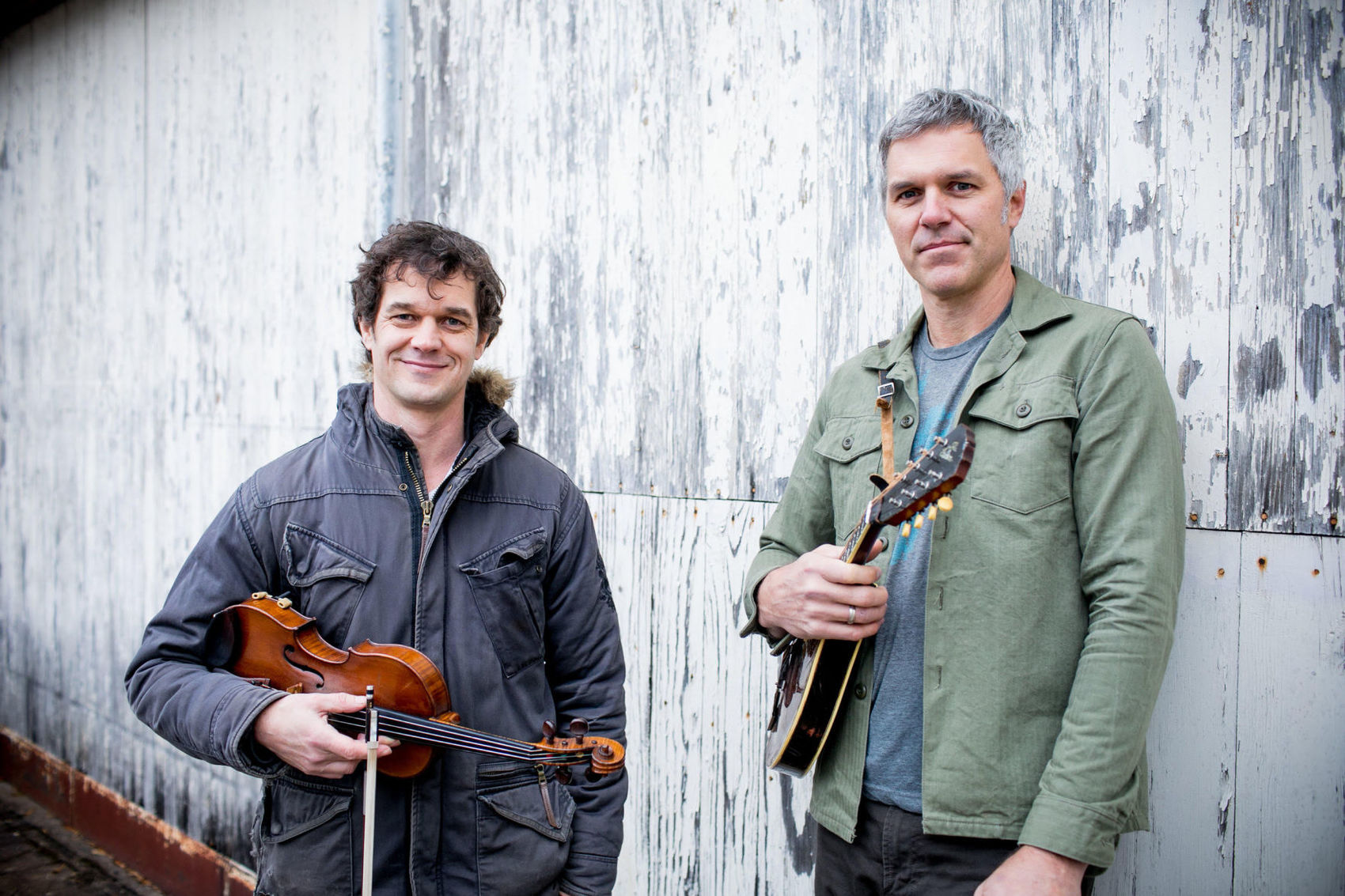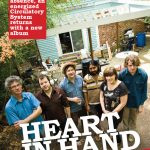Buried in the crooks and corners of the Appalachian mountains lives a haunting sound that stays with Jason Cade to this day.
He was quite young when this hidden music – old-time fiddle tunes passed down from generation to generation – came into his life. It was in Celo, the western North Carolina community Cade grew up in, where he met Bruce Greene. In the 1970s and ’80s, Greene scoured the Appalachians looking for the “oldest guys who were carrying on this music from a style that never caught up to bluegrass,” Cade said.
Greene gathered the songs, recorded them, and in the spirit of the music, shared them with a new generation.
“When I was about 9 I started getting to go over to Bruce Greene’s house and learned some of those old rare tunes,” Cade said. “I was a pretty quick study. He would play a tune for me and then we’d play it together until I basically had it … it was a pretty formative experience for me because it set me on this repertoire that’s a little on the outside of the mainstream of old-time music.”
Move forward 30 years and Cade, with fellow Athens musician Rob McMaken, created a band whose mission is to bring these early 1900s songs into the 21st century. Called Hog-eyed Man, the band has an album and a passion for showcasing this lost mountain music.
“We were drawn to the tunes that sort of have a really odd and crooked structure or a neat rhythm that you don’t likely hear in bluegrass or modern old-time music,” McMaken said. “The quirkier songs that I think people gave up on, the ones people didn’t know what to do with.”
The duo first met a decade ago while recording music with Jonathan Byrd. Cade was practicing law but became a full-time musician with the bluegrass/hip-hop group Gangstagrass, while McMaken made world music as an original member of Dromedary and Kenosha Kid. They played maybe one or two shows together but lost touch until recently, when Cade moved to Athens. Getting a little older had Cade wanting to bring back the old-time music of his youth, and McMaken proved the perfect partner.
McMaken, originally from North Georgia, started playing music when he was 12. The dulcimer was one of the instruments he picked up for fun, but one day heard someone playing the instrument like he never heard before. It sent him on a sudden quest.
“It was a haunting sound and I remember listening to it and asking someone if it was Indian music, I thought from India,” he said. “It was just really meditative and beautiful and when I found out it was really from Appalachia I got into Appalachian poetry and the Foxfire oral history series. I found I was sort of fascinated with a more mysterious Appalachian world that I had not known about.”
Fans of Appalachian songs in a music town such as Athens are bound to cross paths, and not long after McMaken and Cade reconnected, they started playing music. Cade, the fiddler with the old-time songs, and McMaken, with dulcimer and mandolin in tow, began to breathe the songs to life.
“When Rob and I play these tunes, one of the things we’re trying to do that’s a little bit unique is take what’s essentially a solo fiddle tradition and turn it into an ensemble setting,” Cade said.
“The only thing missing from this music is you don’t really hear a dynamic accompaniment,” McMaken added. “Like a guitar playing really big chords that makes the fiddle sound distant and interesting. You don’t hear someone playing right along on mandolin or dulcimer. By taking that approach it’s not trying to change the tunes but trying to bring out all of the qualities the fiddle player is trying to hear and accent all those neat things the fiddle player is doing.”
The result is a self-titled debut album released in December on Asheville’s Yodel-Ay-Hee label and Monday at World Famous, Hog-eyed Man plays a St. Patrick’s Eve double-concert with accomplished New York Irish musicians Dana Lyn and Kyle Sanna.
“Neither of us claim to be authentic, that’s not our goal; we’re playing music as archivists but I really like the idea of someone getting to discover Appalachian music through something like this,” McMaken said.




